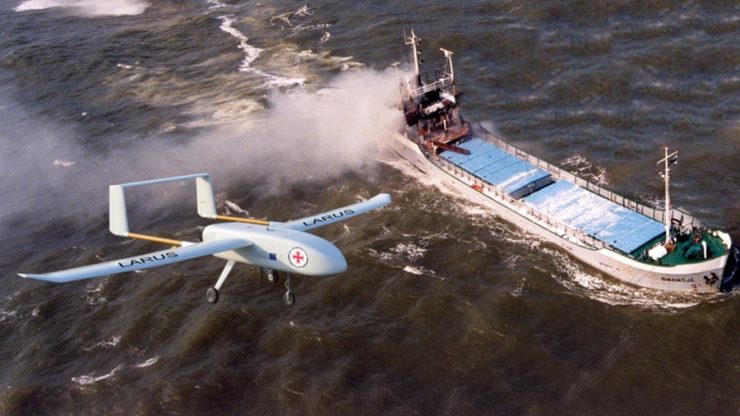Research by Dortmund University demonstrates “reliable long-range multi-link communication for unmanned Search and Rescue Aircraft (SAR) systems in Beyond Visual Line of Sight (BVLOS) operation” according to a report published by the researchers on 1 May 2020.
The university participates in the LARUS project, funded by the Germany Federal Ministry of Education and Research, to develop the basis for an unmanned, automated search and localization system, that is fully integrated into civil airspace, to be deployed by the German Maritime Search and Rescue Service. Its various sensors and communication interfaces enable the UAS to be used in additional scenarios like offshore industry and disaster management.
An abstract published by the university says with the increasing availability of unmanned aircraft systems, their usage for search and rescue is close at hand. Especially in the maritime context, aerial support can yield significant benefits. The article proposes and evaluates the concept of combining multiple cellular networks for highly reliable communication with those aircraft systems. The proposed approach is experimentally validated in several unprecedented large-scale experiments in the maritime context. It is found that in this scenario, conventional methods do not suffice for reliable connectivity to the aircraft with significantly varying overall availabilities between 68% and 97%. The underlying work, however, overcomes the limitations of single-link connectivity by providing availability of up to 99.8% in the analyzed scenarios. Therefore, the approach and the experimental data presented in this work yield a solid contribution to search and rescue drones. All results and flight recording data sets are published along with this article to enable future related work and studies, external reproduction, and validation of the underlying results and findings.
(Image: TU Dortmund, Michael Rauhe)
For more information visit:




